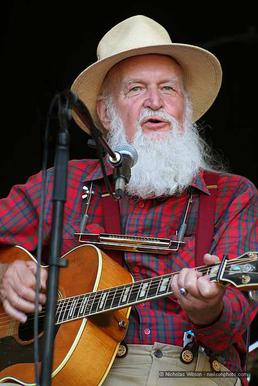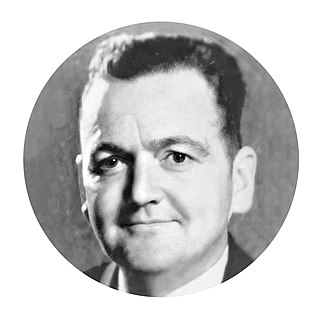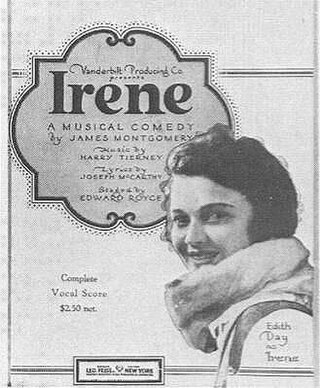Related Research Articles

Bruce Duncan "Utah" Phillips was an American labor organizer, folk singer, storyteller and poet. He described the struggles of labor unions and the power of direct action, self-identifying as an anarchist. He often promoted the Industrial Workers of the World in his music, actions, and words.

Joe Hill, born Joel Emmanuel Hägglund and also known as Joseph Hillström, was a Swedish-American labor activist, songwriter, and member of the Industrial Workers of the World. A native Swedish speaker, he learned English during the early 1900s, while working various jobs from New York to San Francisco. Hill, an immigrant worker frequently facing unemployment and underemployment, became a popular songwriter and cartoonist for the union. His songs include "The Preacher and the Slave", "The Tramp", "There Is Power in a Union", "The Rebel Girl", and "Casey Jones—the Union Scab", which express the harsh and combative life of itinerant workers, and call for workers to organize their efforts to improve working conditions.
Fred Fisher was a German-born American songwriter and Tin Pan Alley music publisher.

Alfred Bryan was a Canadian lyricist.

Guy Hughes Carawan Jr. was an American folk musician and musicologist. He served as music director and song leader for the Highlander Research and Education Center in New Market, Tennessee.

"We Shall Overcome" is a gospel song which became a protest song and a key anthem of the American civil rights movement. The song is most commonly attributed as being lyrically descended from "I'll Overcome Some Day", a hymn by Charles Albert Tindley that was first published in 1901.

Howard Johnson was a song lyricist. He was inducted into the Songwriters Hall of Fame in 1970.

"Solidarity Forever", written by Ralph Chaplin in 1915, is a popular trade union anthem. It is sung to the tune of "John Brown's Body" and "The Battle Hymn of the Republic". Although it was written as a song for the Industrial Workers of the World (IWW), other union movements, such as the AFL–CIO, have adopted the song as their own. The song has been performed by musicians such as Utah Phillips, and Pete Seeger. It was redone by Emcee Lynx and The Nightwatchman. It is still commonly sung at union meetings and rallies in the United States, Australia and Canada, and has also been sung at conferences of the Australian Labor Party and the Canadian New Democratic Party. This may have also inspired the hymn of the consumer cooperative movement, "The Battle Hymn of Cooperation", which is sung to the same tune.
Matti Valentin Huhta, better known by his pen name T-Bone Slim, was an American humorist, poet, songwriter, hobo, and labor activist, who played a prominent role in the Industrial Workers of the World (IWW).

Thomas Joseph McCarthy was an American lyricist whose most famous songs include "You Made Me Love You", and "I'm Always Chasing Rainbows", from the now-forgotten Oh, Look! (1918), starring the Dolly Sisters, based upon the haunting melody from the middle section of Chopin's Fantaisie-Impromptu.

Ella Fitzgerald Sings the Irving Berlin Song Book is a 1958 studio album by the American jazz singer Ella Fitzgerald, with a studio orchestra conducted and arranged by Paul Weston, focusing on the songs of Irving Berlin. It was part of the popular and influential Songbook series.
"The Preacher and the Slave" is a song written by Joe Hill in 1911. It was written as a parody of the hymn "In the Sweet By-and-By". Copying or using the musical style of the hymn was also a way to capture the emotional resonance of that style of music and use it for a non-religious purpose. "The Preacher and the Slave" is also a novel written by Wallace Stegner. The Industrial Workers of the World concentrated much of its labor trying to organize migrant workers in lumber and construction camps. When the workers returned to the cities, the Wobblies faced the Salvation Army, which they satirized as the "Starvation Army", who were said to have tried to drown out IWW with their religious music. Hill had first encountered the Salvation Army in Sweden when he was a child.

"Michael, Row the Boat Ashore" is a traditional African-American spiritual first noted during the American Civil War at St. Helena Island, one of the Sea Islands of South Carolina. The best-known recording was released in 1960 by the U.S. folk band The Highwaymen; that version briefly reached number-one hit status as a single.

Candice "Candie" Payne is an English singer and songwriter. She released her debut album, I Wish I Could Have Loved You More, on Deltasonic in May 2007. She is the sister of singer/songwriter Howie Payne, former frontman of band the Stands, and Sean Payne, the drummer of the Zutons.
Freedom songs were songs which were sung by participants in the civil rights movement. They are also called "civil rights anthems" or, in the case of songs which are more hymn-like, they are called "civil rights hymns."
"Keep Your Eyes on the Prize" is a folk song that became influential during the American Civil Rights Movement of the 1950s and 1960s. It is based on the traditional song, "Gospel Plow," also known as "Hold On," "Keep Your Hand on the Plow," and various permutations thereof.
The Freedom Singers originated as a quartet formed in 1962 at Albany State College in Albany, Georgia. After folk singer Pete Seeger witnessed the power of their congregational-style of singing, which fused black Baptist a cappella church singing with popular music at the time, as well as protest songs and chants. Churches were considered to be safe spaces, acting as a shelter from the racism of the outside world. As a result, churches paved the way for the creation of the freedom song. After witnessing the influence of freedom songs, Seeger suggested The Freedom Singers as a touring group to the SNCC executive secretary James Forman as a way to fuel future campaigns. Intrinsically connected, their performances drew aid and support to the Student Nonviolent Coordinating Committee (SNCC) during the emerging civil rights movement. As a result, communal song became essential to empowering and educating audiences about civil rights issues and a powerful social weapon of influence in the fight against Jim Crow segregation. Rutha Mae Harris, a former freedom singer, speculated that without the music force of broad communal singing, the civil rights movement may not have resonated beyond of the struggles of the Jim Crow South. Their most notable song “We Shall Not Be Moved” translated from the original Freedom Singers to the second generation of Freedom Singers, and finally to the Freedom Voices, made up of field secretaries from SNCC. "We Shall Not Be Moved" is considered by many to be the "face" of the Civil Rights movement. Rutha Mae Harris, a former freedom singer, speculated that without the music force of broad communal singing, the civil rights movement may not have resonated beyond of the struggles of the Jim Crow South. Since the Freedom Singers were so successful, a second group was created called the Freedom Voices.
Ernest and Clarence Iverson were popular radio personalities on Twin Cities stations WDGY and KEYD during the 1930s and 1940s. Ernest (1903–1958) was known as Slim Jim. His brother Clarence (1905–1990) was the Vagabond Kid. Together they performed an eclectic mix of music ranging from country western and Tin Pan Alley to gospel hymns and Scandinavian ballads.

The Union Boys was an American folk music group, formed impromptu in 1944, to record several songs on an album called Songs for Victory: Music for Political Action. Its "all-star leftist" members were Josh White, Sonny Terry, Brownie McGhee, Pete Seeger, Burl Ives, Tom Glazer.
"The Snows They Melt the Soonest" is an English folk song dating back at least as far as 1821. It was mentioned, along with the lyrics, in Blackwood's Magazine (Edinburgh) of that year.
References

- 1 2 3 The Popular Wobbly (T-Bone Slim) Archived 2013-10-29 at the Wayback Machine folkarchive.de. Retrieved October 28, 2013.
- ↑ They Go Wild Simply Wild Over Me by Joseph McCarthy and Fred Fisher, (New York, NY: McCarthy and Fisher, 1917).
- ↑ Songs of the Wobblies (Detroit: Labor Arts, 1954).
- ↑ Sing For Freedom by Guy and Candie Carawan, (Bethlehem, PA: Sing Out Corp.,1990).
- ↑ They Go Wild Over Me (Candie Anderson-Caravan) Archived 2013-06-12 at the Wayback Machine folkarchive.de. Retrieved October 28, 2013.
- ↑ Two Hundred Old Time Favorite Songs (Omaha: Ernest N. Iverson, 1931).
- ↑ The Popular Wobbly Archived 2013-10-29 at the Wayback Machine si.edu. Retrieved October 28, 2013.
- ↑ Songs of the Wobblies Internet Archive. Retrieved 10 January 2015.